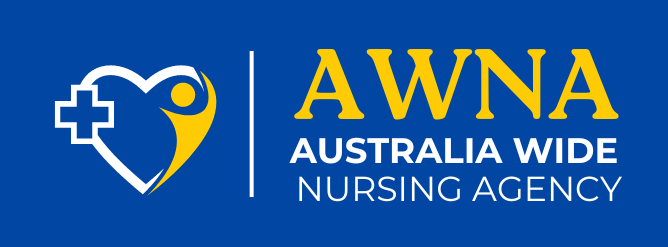Understanding the roles of healthcare professionals: A guide to RNs, ENs, and AINs
In the healthcare sector, understanding the various roles and responsibilities of healthcare professionals is crucial for both facilities and patients. At Australia Wide Nursing Agency, we specialise in providing staffing solutions that encompass a range of healthcare roles, including Registered Nurses (RNs), Enrolled Nurses (ENs), and Assistants in Nursing (AINs). This blog aims to provide an in-depth overview of these key healthcare roles, helping healthcare facilities make informed staffing decisions.
Registered Nurses (RNs)
Registered Nurses (RNs) play a vital role in patient care, serving as the backbone of the healthcare system. They are highly trained professionals who have completed a degree in nursing and passed a national licensing exam. RNs possess a comprehensive understanding of medical procedures, patient assessment, and care planning.
RNs are responsible for a wide range of duties, including:
Patient Assessment: RNs conduct thorough assessments of patients’ health status, including physical examinations and medical history reviews. This information is crucial for developing effective care plans.
Care Coordination: RNs collaborate with other healthcare professionals to ensure seamless care delivery. They coordinate patient treatments, medications, and follow-up care.
Patient Education: RNs play a key role in educating patients and their families about health conditions, treatment options, and self-care strategies. This education empowers patients to make informed decisions about their health.
Supervision of Staff: RNs often supervise Enrolled Nurses and Assistants in Nursing, ensuring that care is delivered safely and effectively.
Enrolled Nurses (ENs)
Enrolled Nurses (ENs) are essential members of the healthcare team who work under the supervision of RNs. They have completed a diploma in nursing and are skilled in providing patient care. ENs play a significant role in supporting RNs and delivering hands-on care to patients.
Key responsibilities of ENs include:
Assisting with Patient Care: ENs provide direct care to patients, including monitoring vital signs, administering medications, and assisting with daily activities such as bathing and dressing.
Implementing Care Plans: ENs work closely with RNs to implement care plans and ensure that patients receive the appropriate interventions based on their needs.
Communication with Patients: ENs serve as a vital link between patients and the healthcare team. They communicate patients' concerns and progress to RNs, ensuring that care is responsive to individual needs.
Assistants in Nursing (AINs)
Assistants in Nursing (AINs) are often the first point of contact for patients in healthcare settings. They play a crucial role in providing support to RNs and ENs while delivering essential care to patients. AINs typically have completed a Certificate III in Aged Care or equivalent training.
The responsibilities of AINs include:
Basic Care Tasks: AINs assist with basic personal care tasks, such as bathing, grooming, and feeding patients. Their support is vital in helping patients maintain their dignity and comfort.
Monitoring Patient Comfort: AINs regularly check in on patients to ensure their comfort and well-being, alerting RNs and ENs if any concerns arise.
Assisting with Mobility: AINs help patients move safely, whether it's transferring them from a bed to a chair or assisting with walking. Their assistance is crucial for preventing falls and promoting independence.
The Importance of Teamwork
In healthcare, teamwork is essential for delivering high-quality patient care. RNs, ENs, and AINs must work collaboratively to ensure that patients receive comprehensive and coordinated care. Each role is vital to the overall healthcare delivery system, and understanding their responsibilities helps healthcare facilities build effective teams.
Conclusion
In summary, understanding the roles of healthcare professionals—Registered Nurses, Enrolled Nurses, and Assistants in Nursing—is crucial for both healthcare facilities and patients. By partnering with Australia Wide Nursing Agency, healthcare facilities can access a diverse range of qualified professionals, ensuring they have the right staff to meet their specific needs. Each role contributes to a collaborative approach to patient care, ultimately leading to improved health outcomes and enhanced patient satisfaction.












